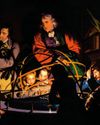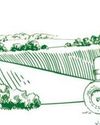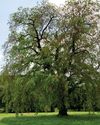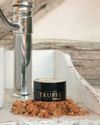
I AM an agnostic. There, I’ve said it. How can you be a vicar, Colin, and call yourself an agnostic? ‘Agnostic’ only means not knowing. And not knowing actually puts us in good company at Easter: the disciples don’t know, either. At first. St Paul is agnostic when he says: ‘Now we see in a mirror, dimly, but then we will see face to face. Now I know only in part; then I will know fully’ (1 Corinthians 13:12).
For the time being, I must settle for knowing only in part. This isn’t because I wasn’t paying attention at school; it’s because I’m human. Arguably, even if I had been paying attention at school (which, quite honestly, I wasn’t), it may not have been to my advantage anyway. Good teachers encourage us to ask questions. How will you ever learn, they explain, if you don’t ask? And remember, they invariably add, there are no silly questions.
But what if all questions are silly questions? In Meno, Plato argues we can never learn anything by asking questions. Let’s assume, he says, you can divide all facts into two classes: the facts you know and the facts you don’t. I know what the capital of France is, but I don’t know the exact current population of Vancouver. There’s no point in my asking ‘what’s the capital of France?’ because I already know the answer. I’d learn nothing new by asking the question. Yet, I don’t know the population of Vancouver, so how would I ever be in a position to accept as false or correct an answer you might give me? Again, I can learn nothing by asking the question.
If you know the answer already, inquiry is unnecessary. If you don’t know the answer already, inquiry is futile.
Denne historien er fra March 27, 2024-utgaven av Country Life UK.
Start din 7-dagers gratis prøveperiode på Magzter GOLD for å få tilgang til tusenvis av utvalgte premiumhistorier og 9000+ magasiner og aviser.
Allerede abonnent ? Logg på
Denne historien er fra March 27, 2024-utgaven av Country Life UK.
Start din 7-dagers gratis prøveperiode på Magzter GOLD for å få tilgang til tusenvis av utvalgte premiumhistorier og 9000+ magasiner og aviser.
Allerede abonnent? Logg på

A leap in the dark
The primal play of light and shadow, whether in Leonardo's ever-so-subtle sfumato or Caravaggio's dramatic contrasts, has shaped Western art, as Michael Hall reveals

Beauty and the blimp
Inflammable airships may be gone, but a new hybrid aircraft, capable of delivering eco-friendly aviation, is set to take to the skies with a bang, finds Charles Harris

Three wishes for food and farming
Royal hedge planting, the terrible toll on Ukrainian farming and a maiden speech

Seeing the wood for the trees
Scotland's much-evolved forestry industry has become a focus for clever investors

Let's fall in love
Birds do it, bees do it, even educated fleas do it. Laura Parker finds that, when it comes to creatures mating for life, persistence, patience and a little dad dancing are key to success

Back from the dead
THREE Wentworth elm saplings have been planted in the grounds of the Palace of Holyroodhouse, Edinburgh, and on the Highgrove estate in Gloucestershire-29 years after what was thought to be the lastknown Wentworth elm died.

A man among men
What makes a master? Beloved of the commercial art world, handled warily by art historians, the word has long been opaque. Michael Prodger investigates its many meanings-and discovers that being male confers an unfair advantage

Unearth one of life's luxuries
Black diamonds are a girl's best friend this Valentine's Day, with Périgord truffle-based skincare from TRUFFE

Adventure awaits
Spend an unforgettable family holiday on the Benmore Estate and experience some of Scotland's finest wildlife and sporting activities

Let the art rule the head
Despite being a world leader in everything from jewellery to fashion and music, the UK is failing to nurture creativity at school and in regional centres. Tristram Hunt, director of the V&A Museum, calls for an urgent review